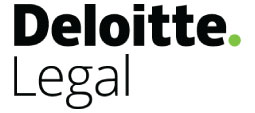The EU Directives on Work-life balance and on Transparent and predictable working conditions are expected to take effect in the Czech national legislation in the second half of 2023 with some exceptions starting on 1 January 2024. They will bring about significant changes and obligations for the employers. What will they mean for businesses?
This report is designed to help companies to understand the requirements and how they have been implemented.
Implementation of EU Directive on Work-Life Balance (EU Directive 2019/1158)
Has the directive been implemented in the jurisdiction?
No.
What is the status of the implementation or draft implementation?
An amendment to the Czech Republic’s Labour Code made by the Ministry of Labour and Social Affairs was published in September 2022 and consequently submitted to Parliament in April 2023. The wording on the key changes described below was finalized based on remarks and comments made by the public. However, it may yet be subject to change as a result of amendment proposals made during discussion of the proposal in Parliament.
It is expected that the amendment will be implemented in the months ahead and come into effect in the second half of 2023 (although certain exceptions will become effective on 1 January 2024).
What are the key changes for employers and employees?
1. Working conditions for female and male employees who care for children or anybody who is dependent on the assistance of another individual
- Parents with children aged under 9 or caregivers can make a request to work remotely.
- If the request is rejected, the employer must justify the decision in writing.
2. Parental leave
- Parental leave must be requested in writing. Requests for parental leave must be submitted at least 30 days before the beginning of the leave period. A shorter notice period can be applied under special circumstances.
- The request must specify the duration of the parental leave.
- Such a request can be submitted repeatedly.
3. Agreements on works performed outside an employment relationship
- In the event of termination of employment law relationship established based on the agreement, the employee will be able to ask the employer to justify the decision.
- The employer will have to inform the employee in writing about the reason for the employment law relationship being terminated.
What are the main actions for HR departments in preparing for the changes?
- Review internal guidance and documentation on working from home, and decide on the appropriate solution for parents and carers.
- Review or draft the form for requesting parental leave.
- Prepare a template for responding to a request for the justification of termination of employment law relationship established based on the agreement on performance of work/agreement on working activity.
- Deliver training to acquaint HR staff with the new rules.
Implementation of EU Directive on Transparent and Predictable Working Conditions (EU Directive 2019/1152)
Has the directive been implemented in the jurisdiction?
No.
What is the status of the implementation or draft implementation?
An amendment to the Czech Republic’s Labour Code made by the Ministry of Labour and Social Affairs was published in September 2022 and consequently submitted to Parliament in April 2023. The wording on the key changes as described below was finalized based on the remarks and comments of the public. However, it may yet be subject to change as a result of amendment proposals made during discussion of the proposal in Parliament.
It is expected that the amendment will be implemented in the months ahead and come into effect during the second half of 2023 (although certain exceptions may become effective on 1 January 2024).
What are the key changes for employers and employees?
1. Information on the terms of an employment relationship
- There will be a shorter period (reduced from one month to seven days) for informing the employee of the terms of the employment relationship.
- There will be new rules for informing employees electronically.
- A wider range of information will have to be provided to the employee, including information about the probationary period, social security authority, procedures for terminating employment and opportunities for professional development.
- Information about weekly working hours and how they and rest periods are distributed must also be provided to employees working under an agreement on works performed outside an employment relationship.
- There will be a new obligation to inform employees posted abroad about the terms and conditions of a secondment to another country.
2. Agreements on works performed outside an employment relationship
- The employer must schedule an employee’s working hours as part of the weekly schedule of working hours.
- The schedule of working hours must either be submitted to the employee three days in advance of work starting, or at a time agreed by both parties.
- The employee is entitled to paid leave. The amount of paid leave is calculated based on a 20-hour working week.
- The employee will be able to ask the employer to justify the termination of employment, and the employer will have to inform the employee in writing about the reason.
- An employee who has worked for an employer based on such agreement at least 180 days during the previous 12 months can ask to be employed in a standard employment relationship (i.e. under a contract of employment).
What are the main actions for HR departments in preparing for the changes?
- Review and amend the template of information for employees. If relevant, prepare a template of information for employees posted abroad.
- Review and amend any agreements on work performed outside an employment relationship and HR processes related to the respective employment law relationships established based on these agreements.
- Prepare a template with an answer to the request to be employed in a standard employment relationship (i.e. under a contract of employment).
- Deliver training to acquaint HR staff with the new rules.
By Jan Prochazka, Partner I Attorney at Law, and Petra Schneiderova, Managing Associate I Attorney at Law, Deloitte Legal Czech Republic
This communication contains general information only, and none of Deloitte Touche Tohmatsu Limited (“DTTL”), its global network of member firms or their related entities (collectively, the “Deloitte organization”) is, by means of this communication, rendering professional advice or services. Before making any decision or taking any action that may affect your finances or your business, you should consult a qualified professional adviser. No representations, warranties or undertakings (express or implied) are given as to the accuracy or completeness of the information in this communication, and none of DTTL, its member firms, related entities, employees or agents shall be liable or responsible for any loss or damage whatsoever arising directly or indirectly in connection with any person relying on this communication. DTTL and each of its member firms, and their related entities, are legally separate and independent entities.


